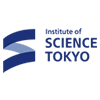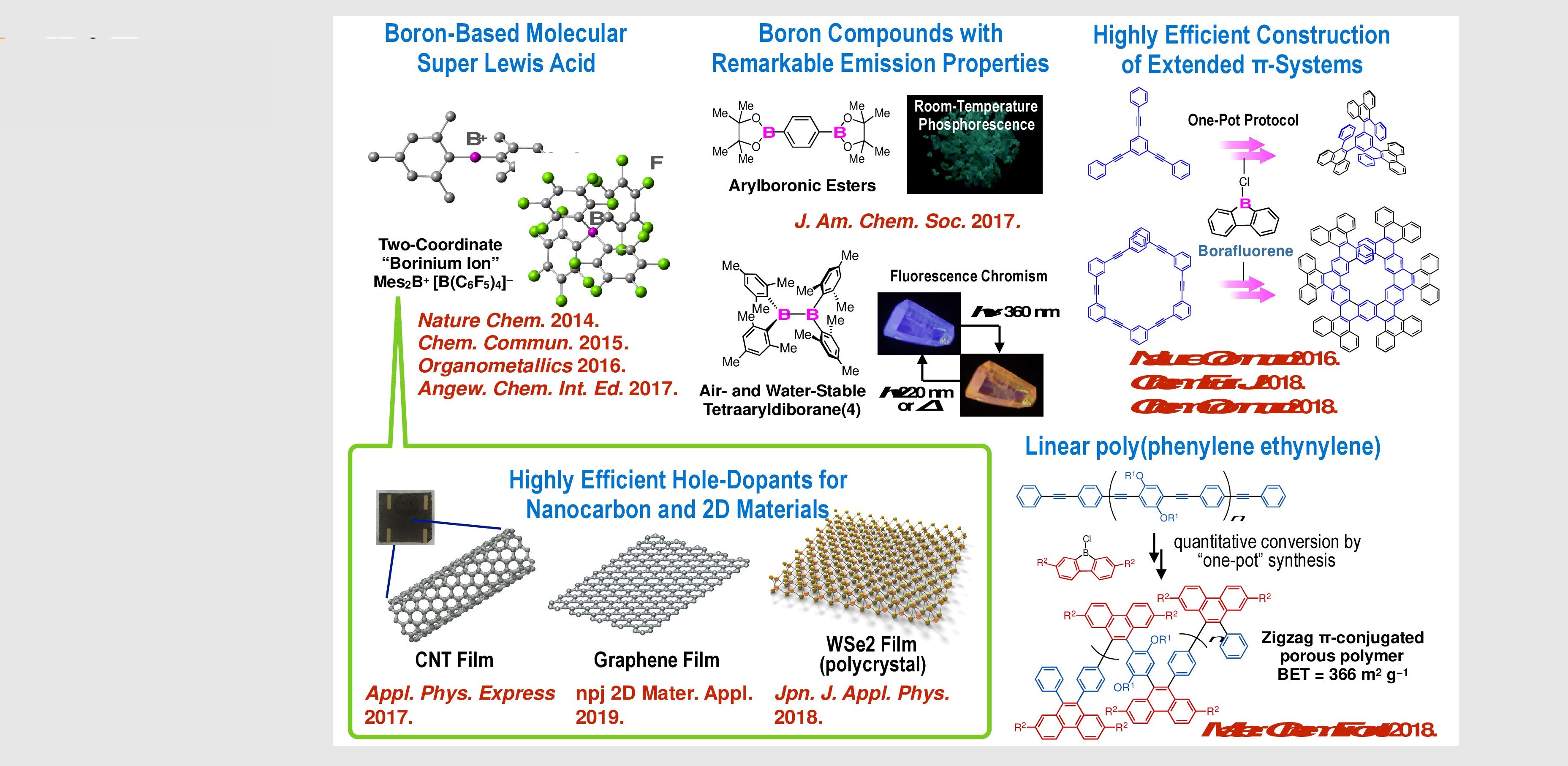
CLS
Laboratory for Chemistry and Life Science, Institute of Integrated Research, Institute of Science Tokyo
東京科学大学
総合研究院
化学生命科学研究所

LAST UPDATE 2020/06/08
-
研究者氏名
Researcher Name庄子良晃 Yoshiaki SHOJI
准教授 Associate Professor -
所属
Affiliation東京科学大学 総合研究院 化学生命科学研究所
分子組織化学領域
Laboratory for Chemistry and Life Science, Institute of Integrated Research, Institute of Science Tokyo
Molecular materials design division -
研究キーワード
Research Keywordsホウ素化合物
ルイス酸
π電子系化合物
有機エレクトロニクス
Boron compound
Lewis acid
π-Electronic system
Organic electronics
- 研究テーマ
Research Subject -
元素の特性を活かした新物質および物質変換反応の開発
Development of new materials and organic transformations based on element chemistry
研究の背景 Background of the Research
我々は、ホウ素を主元素として用いた新しい物質変換反応の開発と、それを通じた新物質創製に取り組んでいます。ホウ素化合物の構造特性や反応性は、ホウ素化合物の電子欠損性とホウ素の低い電気陰性度に特徴付けられます。これまでに、超ルイス酸分子とも言える2配位ホウ素カチオン化合物や、ホウ素が媒介する新しい炭素–炭素結合形成反応などを開発してきました。これらの研究は基礎化学的な興味から実施したものですが、研究を通じて、最新の物質科学に活用できる知見も得られつつあります。
We are working on the development of new chemical species and organic transformations using boron compounds. The structural properties and reactivity of boron compounds are characterized by the electron deficiency and low electronegativity of boron. Our achievements include the development of a two-coordinate boron cation with super Lewis acidity and new C–C bond forming reaction mediated by boron. These studies belong to fundamental chemistry, whilst obtained results can be utilized to applied material science.
研究の目標 Research Objective
最近、有機ホウ素化合物を用いた物質変換反応開発において、これまでにない連続的C–C結合形成/切断反応が進行し、前例のない分子骨格が得られる反応を見出しました。また、ホウ素官能基がπ化合物の励起状態特性に大きく影響し、特異な発光機能を示す系なども見出しつつあります。これらの萌芽的な知見を発展させ、有用な有機合成反応や機能分子のビルディングブロックを開発することを目指しています。
Recently, we discovered sequential C–C bond formation/cleavage reactions that afford unprecedented molecular skeletons. In addition, we also found that boron substituents largely affect on the excited state characteristics of the π-conjugated molecules, giving rise to unique emission behaviors. Through elaborating these findings, we try to develop useful organic transformations and building blocks of functional materials.
研究図Figures

論文発表 / Publications
Nature Chem. 6, 498 (2014). Nature Commun. 7, 12704 (2016). ibid. 9, 4530 (2018). J. Am. Chem. Soc. 139, 2728 (2017). Angew. Chem. Int. Ed. 56, 5312 (2017). Chem Commun. 54, 12314 (2018). Npj 2D Mater. Appl. 3, 7 (2019). J. Org. Chem. 84, 1941 (2019). Chem. Eur. J. 24, 13223 (2018).
研究者連絡先 / HP
- yshoji
 res.titech.ac.jp、shouji.y.4484
res.titech.ac.jp、shouji.y.4484 m.isct.ac.jp
m.isct.ac.jp - http://fuku.res.titech.ac.jp/members/shoji.html